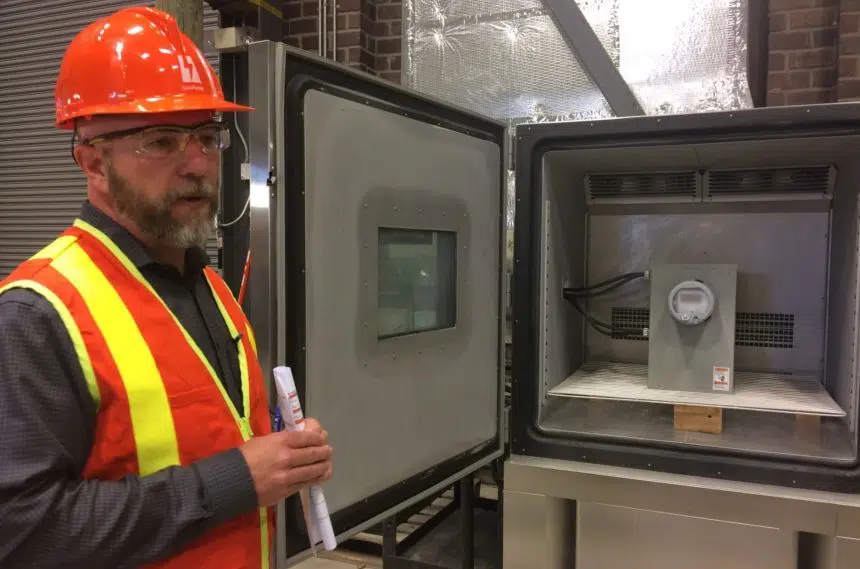Failures in the past aside, SaskPower has moved forward and feels confident its re-launched smart meter program will be successful this time around.
The crown has announced it has begun testing the meters on some industrial and commercial buildings, three years after thousands of meters were removed after numerous fires were reported.
A total of 500 meters will be installed and tested on the sites of two industrial customers, along with some SaskPower and SaskEnergy buildings.
SaskPower President and CEO Mike Marsh believes they’ve learned their lessons from the past and things will go more smoothly now.
“We’ve worked hard with the meter industry. We’re very, very confident.”
The difference in 2017 is that the crown has done extensive testing over multiple years, working closely with the meter industry, but also doing its own in-house meter experiments that were not done in 2014 prior to the meters failing. Marsh said testing was previously done solely by the manufacturer.
“We’ve done a tremendous pile of testing and work over the past three years,” he said. “We didn’t undertake the extensive meter testing in the field or the laboratory like we’ve done today.”
That testing included subjecting the devices to extreme cold of -50 Celsius and to extreme heat of 85 C, all within a fridge-sized chamber at one of SaskPower’s facilities. High voltage and high current were also pumped into the meters — more than they’re made to handle — for several hours at a time to see how the devices would respond.
In 2014, 108,000 meters that had been installed were abruptly removed after 10 meters caught fire, sparking and smoking. In some cases, the siding of homes were melted around the meters. The subsequent removal cost the crown $15 million. The complete failure of the program’s first effort cost $47.5 million.
Shortly after the failure, former CEO Robert Watson stepped down.
As part of a settlement from the manufacturer, Sensus, SaskPower received a $23.8 million refund, an $18.2 million credit for future meter purchases and a further $5.5 million for research and development of a new meter that meets safety standards.
Marsh touted the benefits of the smart meters, what he called the first step towards a smart grid. He said they’ll lead to more precise billing, shorter power outages and more and better data.
Once non-residential meter testing is complete, a pilot will begin for the meters to be placed on homes. Those residential meters will be supplied by Sensus, and will differ from the meters industrial and commercial customers use.
Marsh said homeowners can expect the new smart meter program to be piloted sometime either next year or early 2019 at the earliest.
“We expect a meter that will meet all the requirements and pass all the tests at the point we’re ready to deploy in 2018, 2019.”











